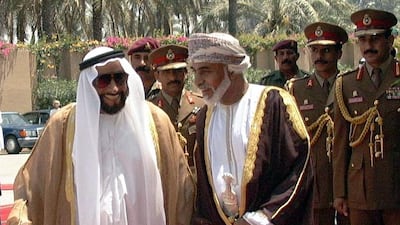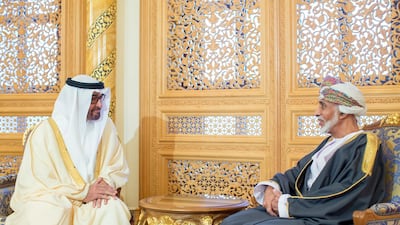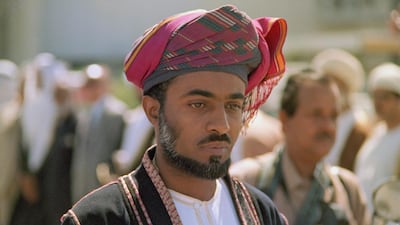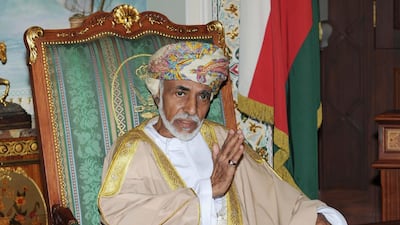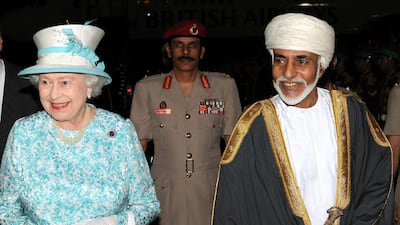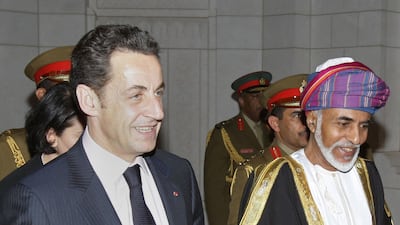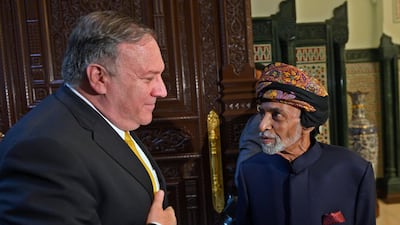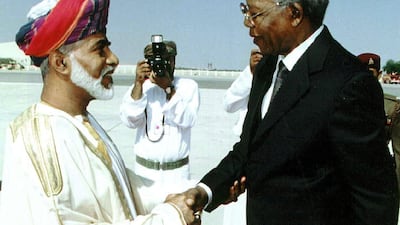As the longest-serving ruler in the Middle East, Sultan Qaboos deserves enormous credit for the contribution he made in his efforts to maintain the security and stability in the region as well as his own country.
By far his most notable achievement was in bringing political stability to Oman, a country that underwent a radical transformation during his reign, which started in 1970 when he succeeded his father and began the transformation of Oman in to a modern state.
At the time of his accession, Oman is reported to have possessed only 12 hospital beds, six miles of surfaced roads and three primary schools – all of them for boys. Radios were banned and civilians were not allowed to drive. The gates of Muscat were closed every evening, and residents of the city were required to carry lanterns if they went out after dark.
A week after succeeding his father, at the age of 29, Qaboos visited the capital, Muscat, and committed himself to modernising the country. “It was”, he said later, “a new dawn”.
His reform programme was helped immensely by the fact that in the mid-1970s Oman’s oil industry was developing fast, thereby allowing Qaboos to invest the revenue in the development of his country. He ensured that those resources were committed to improving Oman on every front.
But in order to stabilise the country, Qaboos needed to quell the guerrilla insurgency in Dhofar province, where his enemies were armed and supplied by the Marxist leadership in neighbouring South Yemen.
The origins of the rebellion dated back to the early 1960s, but its high-water mark of military success was reached in 1970 when the insurgents, 96 members of the South Yemeni-supported Popular Front for the Liberation of the Arab Gulf controlled all of Dhofar except for the RAF base at Salalah.
A committed Anglophile, Qaboos had been educated by British tutors and at the Sandhurst Military Academy, he relied on Britain’s elite SAS to support Omanis working to defeat the rebels. By 1975, after some bitter fighting, the last rebel town, Rakhyut, was recaptured, and on December 11, he declared the war was officially over.
After the successful resolution of the conflict, Qaboos continued to maintain his close relationship with the British. When he decided to create an air force in 1974, he entrusted the task to Air Marshal Sir Erik Bennett, an RAF officer who was then serving as air adviser to King Hussein of Jordan. Their personal bond grew stronger when the two men narrowly survived a car accident in Oman 1995.
Qaboos also proved adept in the statesmanlike role he performed beyond Omani shores, where he won respect for the skill he displayed in steering Oman along a middle path through the tricky landscape of Middle Eastern diplomacy.
He insisted on maintaining ties with all sides and set his role as a mediator. When the Arab world cut off Egypt in 1977 for establishing ties with Israel, Muscat maintained its links with Cairo.
The Sultan had ties with various countries and sides, adopting a neutral stance wherever possible. While having strong relations with the United Kingdom and the United States, he was among the first to foster ties with China and Russia.
He was always wary of adopting extreme positions, and, while remaining a close ally of the West, also managed to maintain good links with Iran, to the extent that, when US President Barack Obama sought to open a backchannel to Tehran for secret talks over the nuclear programme, it was natural for the Americans to turn to Oman.
Qaboos helped to arrange a series of covert meetings between US and Iranian officials in 2013. When an interim agreement was reached in Geneva in November of that year imposing constraints on Iran’s nuclear programme, all the groundwork had been laid via the “Oman channel” – as diplomats called his discreet efforts.
But Qaboos also remained well aware of the potential threat Iran posed to Gulf security. Following the revolution in Iran in 1979, and the outbreak of the Iran-Iraq war the following year, he opted for Oman to join the Gulf Cooperation Council in 1981.
Oman’s geographical location close to the Strait of Hormuz meant that the country’s vulnerability was always uppermost in his mind, leading him to sign a military access agreement with the United States, which resulted in joint manoeuvres being carried out to test the readiness of the US Rapid Deployment Force.
More recently, one of his last acts was to sign a military cooperation pact with Britain that resulted in the opening of a new British base in Oman.
He was also known for his love of culture and music, in addition to being an avid reader.
In 1985, he established one of the most well-known symphony orchestras in the Arab world. All the musicians were to be Omani and it helped foster a unique musical standing for Muscat in the region. All training was also conducted in Oman and on July 1, 1987, the Royal Omani Symphony Orchestra performed its first concert. In 1988, women were admitted to the orchestra, a bold move at the time.
In 2001, he announced plans to build an opera house in Muscat. The Royal Opera House opened ten years later, in 2011, with a production of Turandot, and continues to host a busy and vibrant cultural programme.
Sultan Qaboos will be remembered for the development his country achieved under his watch and the unique role he carved out for it regionally and internationally.

